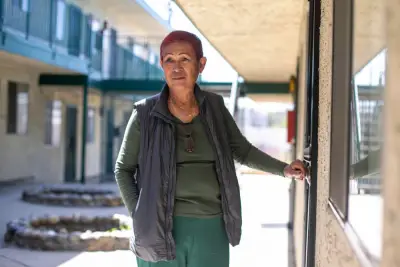Lopez: If caregivers for our elders get deported, who takes their place?

She rides three buses from her Panorama City home to her job as a caregiver for an -year-old Sherman Oaks woman with dementia and lately she s been worrying about getting nabbed by federal agents When I appealed what she ll do if she gets deported B who s and appealed me to withhold her name paused to compose herself I don t want to cry she mentioned but losing her hourly job would be devastating because she sends money to the Philippines to assistance her family The world is getting grayer each day thanks to an epic demographic wave In California of the state s residents will be and older by up by from At a time where it seems fewer and fewer of us want to work in long-term care the need has never been greater Harvard healthcare procedures analyst David C Grabowski advised the Los Angeles Times Emily Alpert Reyes in January So how will millions of aging Americans be able to afford care for physical and cognitive decline especially given President Trump s big beautiful proposed cuts to Medicaid which covers about two-thirds of nursing home residents And who will take care of those who don t have family members who can step up There are no good answers at the moment Shrinking workforce Deporting care providers might make sense if there were a plan to make the jobs more attractive to homegrown replacements but none of us would bet a day-old doughnut on that happening Nationally and in California the vast majority of workers in care facilities and private settings are citizens But employers were already having trouble recruiting and keeping staff to do jobs that are low-paying and intricate and now Trump administration policies could further shrink the workforce Earlier this year the administration ordered an end to programs offering temporary protected status and work authorization and the latest goal in Trump s crackdown on illegal immigration is to make arrests daily People are worried about the threat of deportation but also about losing whatever job they have and being unable to secure other work revealed Aquilina Soriano Versoza director of the Pilipino Workers Center who estimated that roughly half of her advocacy group s members are undocumented In the past she declared employers didn t necessarily ask for work authorization documents but that s changing And she fears that given the political atmosphere certain employers will feel like they have impunity to exploit workers multiple of whom are women from Southeast Asia Africa the Caribbean Mexico and Latin America That may already be happening We ve seen a lot of fear and we ve seen workers who no longer want to pursue their cases when it comes to fighting wage theft revealed Yvonne Medrano an employment rights lawyer with Bet Tzedek a legal services nonprofit Medrano noted the workers are worried that pursuing justice in the courts will expose them to greater exposure of getting booted out of the country In one situation she revealed a worker was owed a final paycheck for a discontinued job but the employer made a veiled threat warning that showing up to retrieve it could be costly Given the hostile climate specific workers are giving up and going home We ve seen an increase in workers self-deporting Medrano announced Conditions for elder care workers were bleak enough before Trump took office Two years ago I met with documented and undocumented support workers and although they re in the healthcare business chosen of them didn t have wellness insurance for themselves Related Articles Trump s voyage ban on countries What to know who s exempted Bring Miguel Home Livermore rally demands father be returned from ICE custody Overview ICE agents arrest four in South San Jose raid Mexican girl is granted humanitarian parole to continue receiving lifesaving care in US lawyers say Bay Area cities called out in sanctuary list find themselves in crosshairs of immigration standoff I met with a cancer survivor and caregiver who was renting a converted garage without a kitchen And I visited an apartment in Panorama City where Josephine Biclar in her early s was struggling with knee and shoulder injuries while still working as a caregiver Biclar was sharing a cramped studio with two other helpers They used room dividers to carve their space into sleeping quarters When I checked with Biclar last week she mentioned four women now share the same space All of them have legal status but because of low wages and the high cost of housing along with the burden of supporting families abroad they can t afford better living arrangements B and another care provider share a single room at a cost of apiece from a homeowner in Panorama City B announced her commute takes more than an hour each way and during her nine-hour shift her duties for her -year-old client include cooking feeding and bathing Fear and chaos She s only working three days a week at the moment and stated additional jobs are hard to come by given her status and the immigration crackdown She was upset that for the last two months she couldn t afford to send any money home Retired UCLA scholar Fernando Torres-Gil who served as President Clinton s assistant secretary on aging revealed fear and chaos in the elder care industry are not likely to end during this presidential administration And given budget constraints California will be hard-pressed to do more for helpers and those who need care But he thinks the growing emergency could eventually lead to an awakening We re going to see more and more older folks without long-term care Torres-Gil reported Hopefully Democrats and Republicans will get away from talking about open borders and talk about selective immigration that serves the country s economic and social necessities The U S is not aging alone Torres-Gil pointed out The same demographic shifts and healthcare requirements are hitting the rest of the world and other countries may open their doors to workers the U S sends packing As more baby boomers join the ranks of those who need help he revealed we might at last understand we need specific kind of leadership It s hard not to be cynical these days but I d like to think he s onto something Steve Lopez is a Los Angeles Times columnist Los Angeles Times Distributed by Tribune Content Agency
